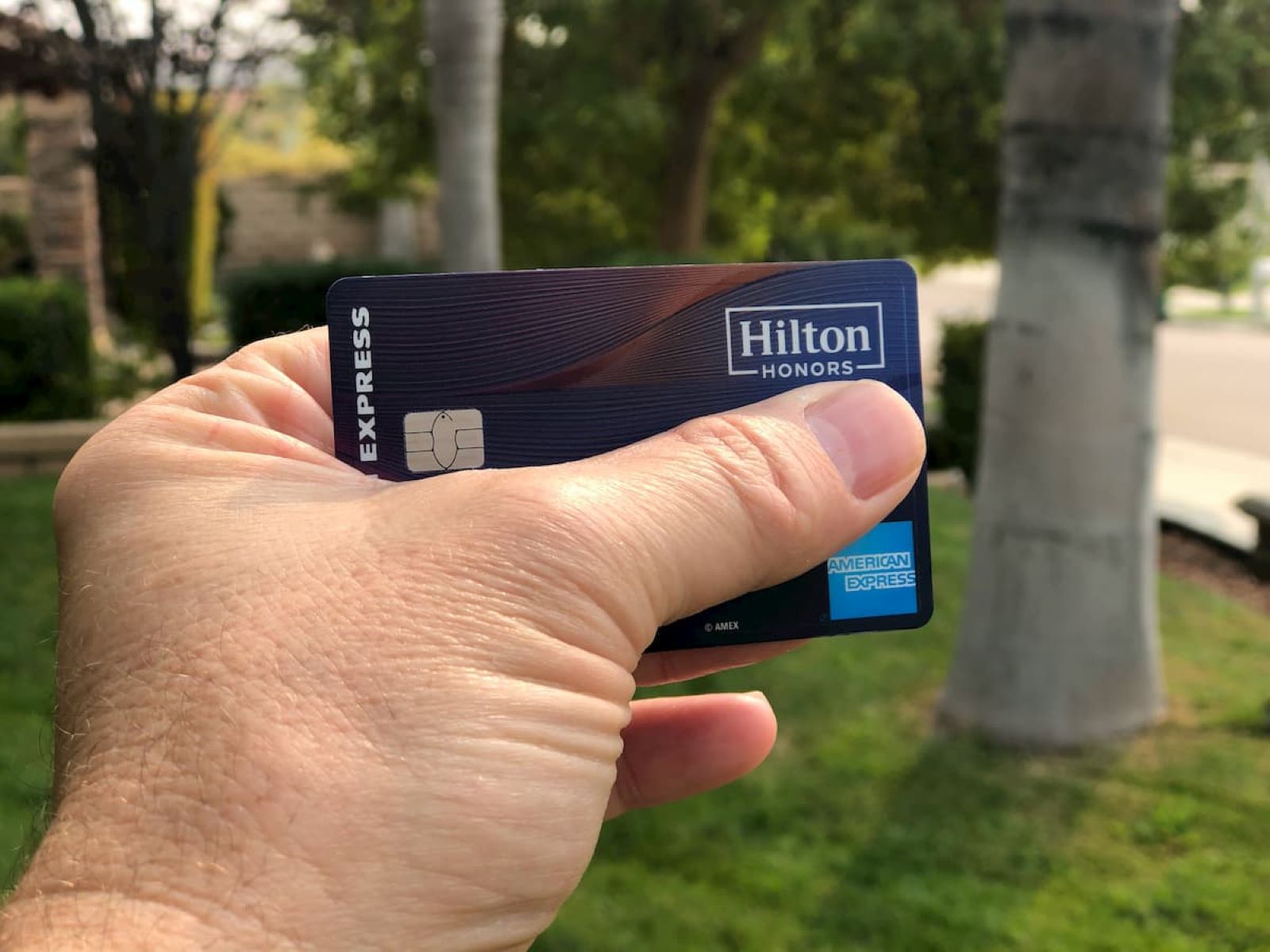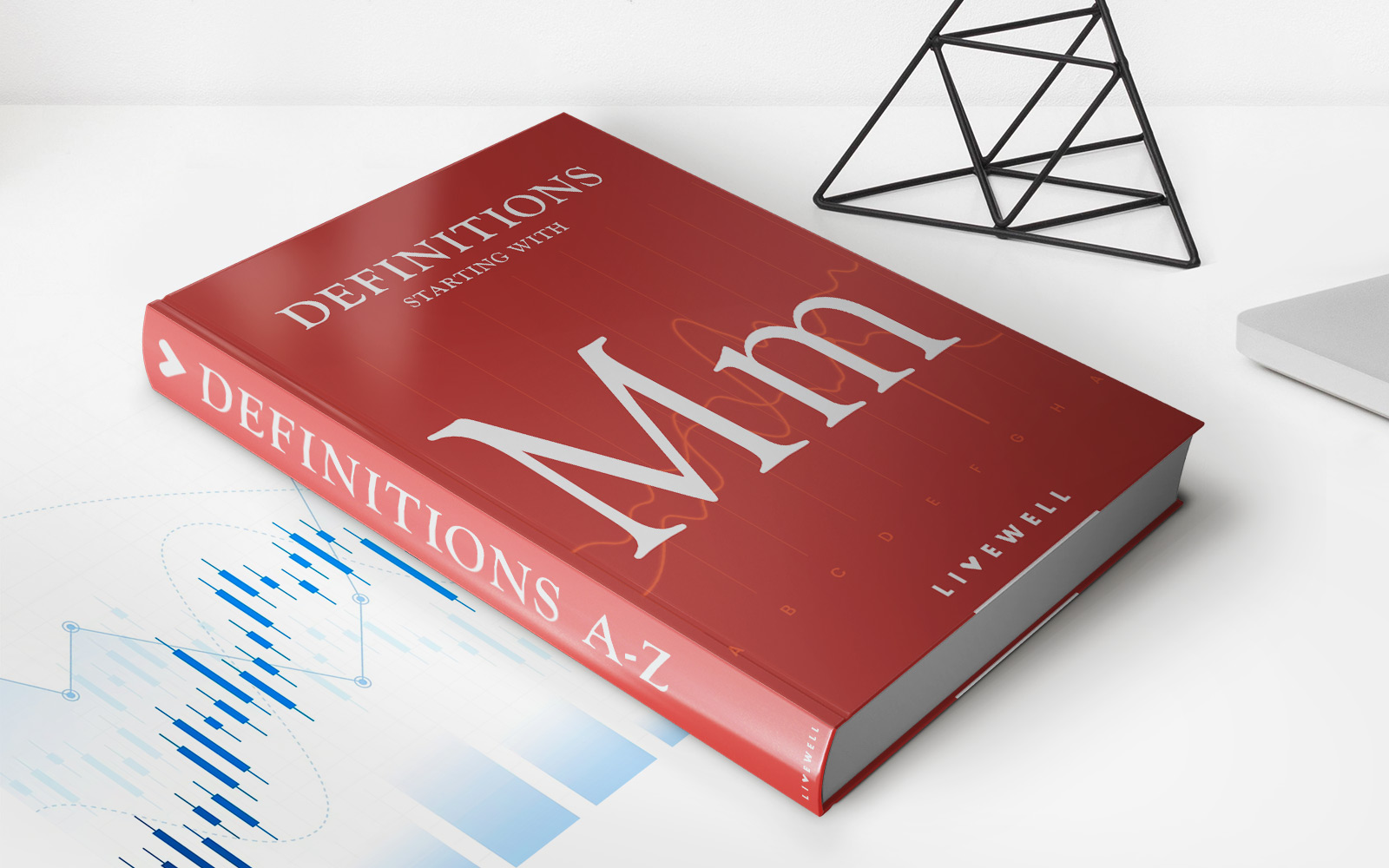

Finance
When Do Hotels Charge Your Credit Card
Published: November 9, 2023
Find out when hotels charge your credit card for bookings and plan your finances accordingly. Avoid surprises and manage your expenses with our helpful guide on hotel payment policies.
(Many of the links in this article redirect to a specific reviewed product. Your purchase of these products through affiliate links helps to generate commission for LiveWell, at no extra cost. Learn more)
Table of Contents
Introduction
When you book a hotel, one of the most common concerns is when and how your credit card will be charged. Understanding the timing and policies behind credit card charges can help you plan your finances and avoid any surprises upon check-in or check-out. In this article, we will delve into the intricacies of hotel credit card charges, including pre-authorizations, reservation deposits, cancellation policies, incidental charges, and fees.
Hotels typically require guests to provide a valid credit card at the time of booking as a form of guarantee for the reservation. However, the actual charge to the credit card may occur at different points during your stay. It’s important to note that each hotel may have its own specific policies regarding credit card charges, so it’s always a good idea to review the terms and conditions before making a reservation.
Understanding the different ways hotels charge your credit card can help you plan for your trip and avoid any unnecessary financial stress. Let’s delve deeper into the various aspects of hotel credit card charges, including pre-authorization versus final charges, reservation deposits, cancellation policies, incidental charges, resort fees, and alternative payment methods.
Pre-authorization vs. Final Charge
When you provide your credit card information to a hotel, they may place a pre-authorization hold on your card. A pre-authorization is a temporary hold on a specific amount of funds in your account to ensure that your credit card is valid and has sufficient funds available. This amount is typically higher than the actual cost of your stay to account for any incidental charges or potential room upgrades.
During the pre-authorization period, the hotel will verify that your credit card is valid and has the necessary funds. This step is necessary to protect the hotel against potential no-shows or cancellations and ensure that they will be able to collect payment for the reservation.
It’s important to note that a pre-authorization hold is not the same as a final charge. The pre-authorization hold will temporarily reduce the available credit on your card, but the funds are not immediately transferred to the hotel. The hold will typically expire after a certain period of time, usually within a few days, if you do not check into the hotel.
Once you check into the hotel and complete your stay, the hotel will then initiate the final charge to your credit card for the actual cost of your stay. This final charge will reflect any additional charges such as room service, spa treatments, or other incidental expenses that you may have incurred during your stay. The final charge will replace the pre-authorization hold and the funds will be transferred from your account to the hotel.
It’s important to keep in mind that the timing of the final charge may vary depending on the hotel’s policies. Some hotels may process the final charge upon check-out, while others may charge your credit card on a daily or weekly basis throughout your stay.
Understanding the distinction between pre-authorization and final charges can help you better manage your credit card balance and anticipate when the charges will appear on your statement. If you have any concerns or questions about the pre-authorization or final charge process, it’s always a good idea to contact the hotel directly for clarification.
Reservation Deposits
When booking a hotel, particularly for special events or peak travel seasons, you may encounter hotels that require a reservation deposit. A reservation deposit is a partial payment made at the time of booking to secure your reservation. It serves as a guarantee and helps the hotel ensure that guests are committed to their stay.
The amount of the reservation deposit can vary depending on the hotel’s policies and the length of your stay. It is typically a percentage of the total cost of your reservation. For example, a hotel may require a 10% deposit for a one-night stay or a 25% deposit for a longer reservation. The specific amount and refundability of the deposit will be outlined in the hotel’s terms and conditions.
Reservation deposits are commonly used for bookings made well in advance or during high-demand periods. By requiring a deposit, hotels can better manage their reservations and minimize the risk of last-minute cancellations or no-shows. This allows the hotel to allocate their rooms more efficiently and potentially offer the room to another guest if a cancellation occurs.
It’s important to carefully review the hotel’s cancellation policy when a reservation deposit is required. Some hotels may have strict cancellation terms, where the deposit is non-refundable if you cancel within a certain timeframe. Others may offer more flexibility and refund your deposit if you cancel within a specified period before your scheduled arrival.
If you do not cancel your reservation and stay according to the agreed-upon dates, the reservation deposit will be applied towards the final charges for your stay. In this case, you will only need to pay the remaining balance upon check-out, or the hotel may charge your credit card for the remaining amount at an earlier time.
Reservation deposits can be an important consideration when planning your trip, as they require an upfront payment before your arrival. It’s vital to read and understand the hotel’s deposit policy and cancellation terms before making your reservation to avoid any surprises or financial implications.
Cancellation Policy Charges
Life is unpredictable, and there may be instances when you need to cancel or modify your hotel reservation. However, it’s crucial to be aware of the hotel’s cancellation policy as charges may apply depending on the timing of your cancellation.
Hotels typically have different tiers of cancellation policies based on how far in advance you cancel. The closer your cancellation is to the scheduled arrival date, the higher the likelihood of incurring charges. It’s important to carefully review the hotel’s cancellation policy before making a reservation to understand the potential financial implications.
In many cases, hotels have a “free cancellation” window, allowing guests to cancel their reservation without penalty up to a certain number of days or hours before check-in. This period can range from 24 hours to several weeks, depending on the hotel’s policy. If you cancel within this free cancellation window, you will not be charged any fees, and any pre-authorization or reservation deposit made will be refunded.
However, if you cancel outside of the free cancellation window, you may be subject to a cancellation fee. The fee can vary depending on the hotel and the timing of your cancellation. It can range from a percentage of the total reservation cost to the equivalent of one night’s stay. Some hotels may even charge the full amount of your reservation if you cancel within a specific timeframe, such as within 48 hours of your scheduled arrival.
It’s important to note that the cancellation policy charges apply not only to outright cancellations but also to modifications that shorten your stay. If you decide to check out earlier than originally planned, the hotel may charge you for the remaining nights based on their cancellation policy.
To avoid cancellation charges, it’s recommended to cancel your reservation within the free cancellation window, if possible. If you need to cancel outside of this period, contacting the hotel directly to explain your situation and inquire about any possible waivers or exceptions can be worth considering.
Be sure to keep documentation of your cancellation request, such as confirmation emails or cancellation numbers, for future reference. In the event of any billing discrepancies or disputes, having proper documentation can help resolve the issue more effectively.
Understanding the hotel’s cancellation policy and potential charges can help you make informed decisions about your reservation and minimize any financial implications if your plans change. Take the time to review the terms and conditions carefully before making a reservation to ensure you are comfortable with the cancellation policy in place.
Incidentals and Additional Charges
When staying at a hotel, it’s important to be aware of potential incidentals and additional charges that may be added to your final bill. These charges are separate from the room rate and cover any extra services or amenities you may use during your stay.
One common form of incidental charge is for services such as room service, spa treatments, or in-room movies. If you order food or beverages to your room, use the hotel’s spa facilities, or enjoy any other services offered by the hotel, these charges will be added to your bill. It’s essential to review the hotel’s rates and fees for these services to avoid any surprises when checking out.
In addition to the specific services mentioned above, hotels may also charge for items such as phone calls, laundry services, minibar items, and parking. These charges are typically outlined in the hotel’s terms and conditions, and it’s important to familiarize yourself with them beforehand to manage your expenses effectively.
It’s common for hotels to require a credit card when checking in to cover the cost of potential incidental charges. This is typically done through a pre-authorization hold on your card, which temporarily sets aside a certain amount of funds to cover any additional charges you may incur during your stay.
During your stay, it’s advisable to keep track of any charges you make to your room and regularly check the balance on the account. This can help you stay within your budget and avoid any surprises when it’s time to settle the final bill.
If you have any concerns about potential incidental charges or want to place any restrictions on your room account, such as setting a spending limit, it’s best to communicate this with the hotel’s front desk upon check-in. They will be able to assist you and make any necessary arrangements.
When checking out, ensure that you review the final bill to verify all charges. If you notice any discrepancies or have questions about any specific charges, don’t hesitate to ask the hotel’s staff for clarification.
Understanding and being aware of potential incidentals and additional charges can help you plan your budget more effectively and avoid any unexpected expenses. It’s always a good idea to familiarize yourself with the hotel’s policies and communication any specific requirements or concerns you may have to ensure a smooth and transparent billing process.
Resort Fees and Other Mandatory Charges
One additional charge that you may encounter when staying at certain hotels or resorts is the resort fee. A resort fee is a mandatory charge imposed by some properties that covers access to certain amenities and services provided by the hotel.
The resort fee is typically a fixed amount per room, per night, and is in addition to the room rate. It is intended to cover services such as Wi-Fi access, pool and fitness center usage, shuttle service, newspaper delivery, and other amenities that the hotel provides. However, it’s important to note that not all hotels charge resort fees, and the presence and amount can vary widely depending on the property.
Resort fees are often a topic of debate among travelers, as they can significantly increase the overall cost of a stay and may be perceived as an additional expense that was not initially disclosed when booking. To ensure transparency, many hotels now include the resort fee in the overall pricing displayed during the reservation process. However, it’s still essential to carefully review the booking details and understand the breakdown of charges.
In addition to resort fees, certain destinations may impose mandatory charges, such as local taxes or tourism levies. These charges are typically required by local authorities and may be separate from any fees or taxes included in the hotel’s room rate. It’s important to factor in these additional charges when budgeting for your trip, as they can vary between destinations and impact the overall cost of your stay.
To avoid any surprises, it’s advisable to research and be aware of any resort fees or mandatory charges that may apply to your chosen hotel or destination. This information can usually be found on the hotel’s website or obtained by contacting their reservations department directly.
While resort fees and mandatory charges can be frustrating for travelers, they are a reality in many destinations. By being aware of these potential costs in advance, you can make more informed decisions when selecting a hotel and budget accordingly for your trip.
Different Credit Card Policies by Hotels
Hotels have varying credit card policies when it comes to payment methods, accepted card types, and other related considerations. Understanding these policies can help you properly plan for your stay and ensure a smooth transaction process. Here are some key factors to consider:
Accepted Card Types: Different hotels may have different policies regarding the types of credit cards they accept. Most hotels accept major credit cards such as Visa, Mastercard, and American Express. However, it’s always a good idea to check with the hotel directly or review their website to ensure that your preferred credit card is accepted.
Payment at Check-In vs. Check-Out: Some hotels may require full payment at the time of check-in, while others allow payment to be made upon check-out. It’s essential to know the hotel’s policy so that you can prepare the necessary funds or ensure that your credit card has sufficient credit limit available for the payment.
Deposit Requirements: Certain hotels may require a deposit to be paid at check-in to cover any potential incidentals or damages during your stay. The deposit amount can vary depending on the hotel’s policies and the length of your stay. It’s important to be aware of this requirement so that you can plan accordingly and have the necessary funds available.
Payment Authorization Holds: Hotels commonly place a pre-authorization hold on your credit card to guarantee payment for the reservation and any additional charges. This hold temporarily reduces your available credit limit but does not immediately transfer the funds to the hotel. The pre-authorization hold will be released after a certain period of time, typically within a few days after check-out if no additional charges were incurred.
International Cards and Currency Conversion: If you are using an internationally issued credit card or staying at a hotel in a different country, it’s important to understand the hotel’s policies regarding currency conversion and any associated fees. Some hotels may offer the option to pay in the local currency or your home currency, but be aware that the exchange rate used may have additional fees or less favorable rates. It’s advisable to clarify these details with the hotel and your credit card provider in advance.
Debit Card Policies: If you prefer to use a debit card instead of a credit card for payment, it’s important to check with the hotel about their policies regarding debit card transactions. Some hotels may place a hold on funds in your bank account, similar to a credit card pre-authorization, while others may have specific requirements or restrictions for debit card payments.
Understanding the different credit card policies of hotels you plan to stay at can help you avoid any complications or surprises during your stay. It’s always recommended to check directly with the hotel or review their website for specific policies regarding accepted card types, payment timing, deposit requirements, and any other related considerations to ensure a smooth and hassle-free experience.
Timing of Credit Card Charges
The timing of credit card charges by hotels can vary based on the hotel’s policies and specific circumstances. Being aware of when charges may occur can help you manage your finances accordingly. Here are some key factors regarding the timing of credit card charges:
Pre-authorization: When you make a reservation, the hotel may place a pre-authorization hold on your credit card. This hold verifies that your card is valid and has sufficient funds available to cover the estimated cost of your stay, including any potential incidental charges. The pre-authorization hold is typically released after a few days if you do not cancel or modify your reservation.
Reservation Deposits: If the hotel requires a reservation deposit, this amount will typically be charged to your credit card at the time of booking or shortly thereafter. The deposit serves as a guarantee for your reservation and may be deducted from the total charges upon check-out.
Final Charge: The final charge for your stay will typically occur upon check-out. This charge will reflect the actual cost of your room, taxes, and any additional charges you may have incurred during your stay, such as room service or spa treatments. The final charge may replace the pre-authorization hold on your card.
Incremental Charges: If you make additional purchases or use services during your stay, such as upgrading your room or ordering room service, these charges may be added to your bill on a daily or cumulative basis. Some hotels may charge your credit card periodically, such as every day or at the end of each week during your stay, to ensure that your bill remains up-to-date.
Advance Payments: In certain cases, hotels may offer discounted rates or promotional packages that require full or partial payment in advance. This can be done at the time of booking or within a specific timeframe before your arrival. These advance payments will typically be charged to your credit card as per the hotel’s policy.
Refunds and Charge Reversals: If you cancel your reservation within the hotel’s cancellation policy or experience a billing error, the hotel will issue refunds or reverse charges on your credit card. The timing of these reversals can vary, but it is typically within a few business days. It’s advisable to follow up with the hotel or your credit card provider if you have not received a refund or charge reversal within a reasonable timeframe.
It’s important to note that the specific timing of credit card charges can vary depending on the hotel’s policies and procedures. To avoid any surprises or complications, it’s recommended to review the terms and conditions of your reservation and clarify any uncertainties with the hotel directly before your arrival. Keeping track of your charges and reviewing your credit card statements can also help ensure accuracy and prompt resolution of any billing discrepancies.
Payment Methods and Alternatives
Hotels typically offer various payment methods to accommodate the preferences of their guests. Understanding these options can help you choose the most convenient and secure way to settle your bill. Here are some common payment methods and alternatives you may encounter:
Credit Card: Most hotels accept major credit cards like Visa, Mastercard, and American Express. Using a credit card can offer convenience, security, and potential rewards or cashback benefits. It’s important to ensure that your credit card has sufficient credit limit available to cover the charges.
Debit Card: Some hotels also accept debit cards for payment. However, it’s worth noting that debit card transactions may have different policies or restrictions compared to credit cards. For example, the hotel may place a hold on funds in your bank account, similar to a credit card pre-authorization, to cover potential charges.
Cash Payment: While cash payments are less common, some hotels may accept cash for settling your bill upon check-out. However, it’s important to check with the hotel in advance, as many hotels require a credit card on file for incidentals or may have specific policies regarding cash payments.
Mobile Payment Apps: With the growing popularity of mobile payment apps, some hotels now offer the option to pay using services like Apple Pay, Google Pay, or other digital wallets. These apps allow you to securely store your credit card information and make contactless payments using your smartphone.
Online Payment: Many hotels have online payment portals where you can securely enter your credit card details to prepay for your stay. This option is particularly useful for advance bookings or when a hotel requires a reservation deposit. It ensures that payment is processed before your arrival and can provide a smoother check-in experience.
Alternative Payment Methods: Depending on the region or specific hotel, you may encounter alternative payment methods such as bank transfers, traveler’s checks, or electronic payment systems. These options are less common but may be available in certain circumstances or specific properties.
It’s important to note that each hotel may have its own policies and accepted payment methods. Before making a reservation, it’s recommended to check the hotel’s website or contact their reservations department directly to confirm the available payment options and any specific requirements.
Additionally, if you have any specific payment preferences or require special arrangements, such as using multiple cards or splitting the bill among multiple guests, it’s advisable to communicate this with the hotel in advance to ensure a seamless payment process.
By understanding the payment methods and alternatives offered by hotels and clarifying any questions or concerns before your stay, you can choose the most suitable method and make your payment experience hassle-free and convenient.
Conclusion
Understanding the various aspects of hotel credit card charges is crucial for managing your finances and ensuring a smooth experience during your stay. From pre-authorizations to final charges, reservation deposits to cancellation policy charges, and incidentals to resort fees, being familiar with these details can help you plan and budget effectively.
Hotels have different credit card policies, including accepted card types, payment timing, and deposit requirements. It’s essential to review and understand these policies before making a reservation to avoid any surprises or inconveniences. Additionally, being aware of the timing of credit card charges, such as pre-authorizations, final charges, and incremental charges, can help you anticipate when and how your credit card will be charged.
Furthermore, recognizing other mandatory charges, such as resort fees and local taxes, can help you accurately estimate the total cost of your stay. This knowledge enables you to budget more effectively and make informed decisions when choosing a hotel or destination.
Finally, understanding the available payment methods and alternatives allows you to select the most convenient and secure way to settle your hotel bill. Whether it’s using a credit card, debit card, or mobile payment app, being aware of the options ensures a smoother check-out process.
In conclusion, by familiarizing yourself with the intricacies of hotel credit card charges, payment methods, and related policies, you can navigate the financial aspects of your stay with confidence. Take the time to review the specific terms and conditions of your chosen hotel, ask questions when needed, and plan your budget accordingly. This knowledge will contribute to a more seamless and enjoyable hotel experience, allowing you to focus on your trip and make the most of your stay.














